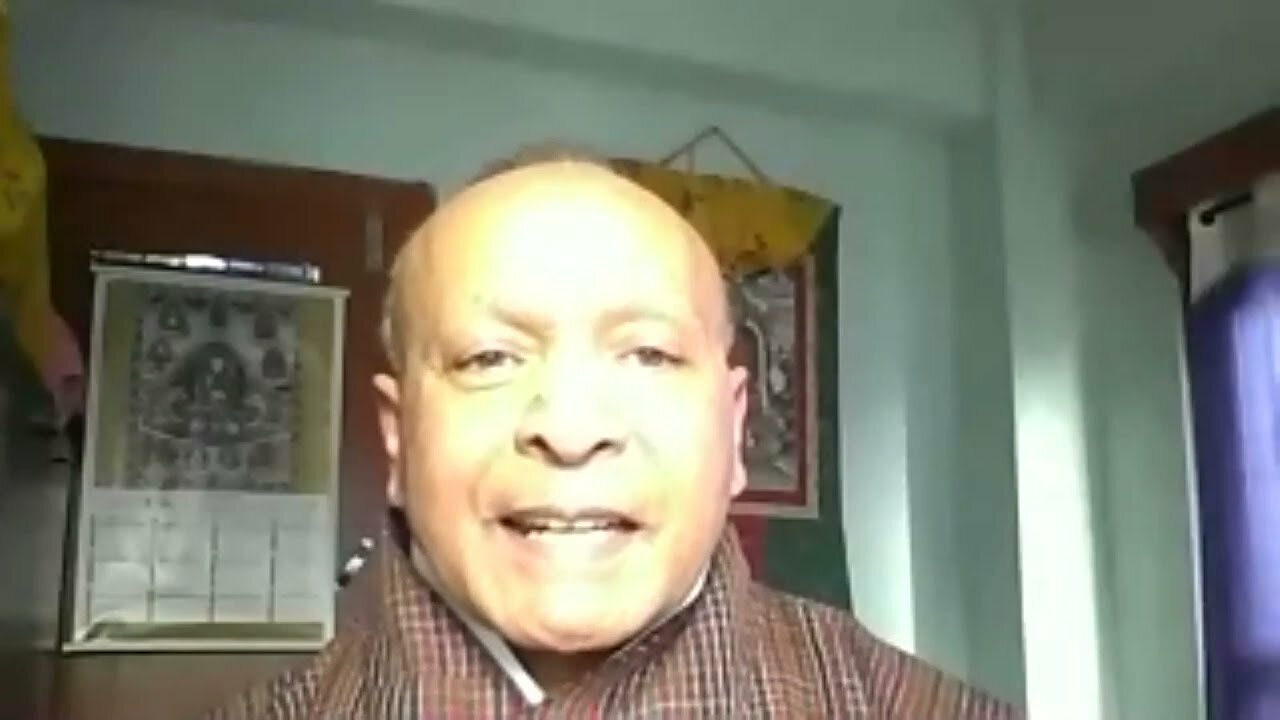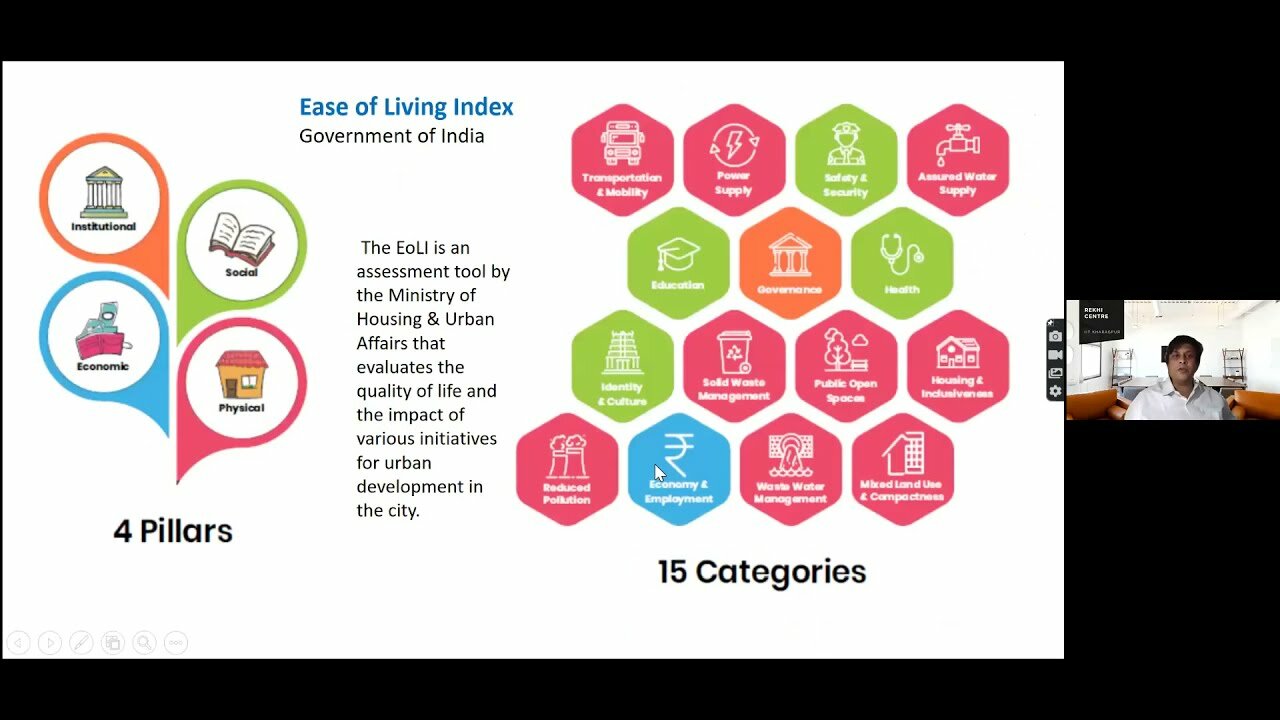South Asia Leaders Dialogue
Rethinking Urban Spaces for a Happy, Sustainable and Inclusive Future
At Asia level the GLAC community has come together as a regional hub to form an action community with the aim to foster partnerships, co-create solutions and enable collective action towards the attainment of the Sustainable Development Goals-Agenda 2030. Urbanism has been selected as a topic for the year 2021 to rethink urban spaces for a happy, sustainable and inclusive future.
Urbanization and Happiness - First South Asia Leader's Dialogue May 6 2021
More than 2.5 billion additional people will move to cities by 2050 which is unprecedented. People move to cities for better socio-economic facilities however the question that begs to be asked is, do people migrate to cities for necessity or happiness? Is the pursuit of happiness linked to exploring socioeconomic opportunities or is it some other elements in the urban space that contribute towards the well-being of urban dwellers?
In 2013, Charles Montgomery, an urbanist, wrote in his book Happy City that “the cities have always been a happiness project.” Gross National Happiness is a concept introduced by the king of Bhutan to gauge citizens’ feelings on a number of factors affecting their lives. This helps the country inform its governance policies that could serve the people.
Outside of Bhutan, the United Nations’ robust World Happiness Report, the Happy Planet Index, and the Gallup-Sharecare Well-Being Index apply a similar concept of evaluation. In the United States, overall well-being is often measured at the city level and based on the availability of economic opportunity, transportation, infrastructure, housing, safety, health services, the environment, social capital, and education.
In order to unbundle the happiness in cities concept the SA-GLAC proposes to hold a discussion around Urban happiness to not only explore various aspects of this pursuit but also contribute to and shape policy dialogues globally.
Presentations
Mr. Thakur S. Powdyel - Green Schools Mandala (22 mins)
Having served as the Minister of Education of the Kingdom of Bhutan, Mr. Powdyel shared with the GLAC Community his model of Green Education, in the Sherig Mandala, which can be transferred to the context of Green Cities as well. Green here being a metaphor for life, understood in a holistic manner rather than ecological only.
Prof. Priyadarshi Patnaik (IIT Kharagpur) - Measuring Urban Happiness (21 mins)
Urging everyone to reflect deeply about why we need a movement like Rethinking Africa Convening (RAC) Fabrice Fifonsi's speech was hinged on the necessity to rethink Africa. “We can leverage on our strong values and African culture such as respect for elders, self control, courtesy, forgiveness, diligence unity and cooperation, integrity and many more. These are just some of the cornerstones we can use to prevent conflicts in Africa,” Fabrice Fifonsi is convinced.
Speakers
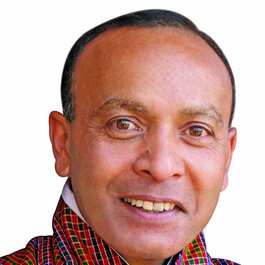
Mr. Thakur S Powdyel
Mr. Thakur S Powdyel
Professor Thakur S. Powdyel is an educator by choice, conviction and passion. As the country’s first democratically elected Minister of Education, he moved Bhutan towards fulfilling the MDGs and the country’s constitutional mandate for education. His major interests include institutional integrity, national self-respect, moral literacy and gross national happiness. He has represented Bhutan at many high-level international and regional conferences and summits. Powdyel was a highly respected Vice President of the iconic Sherubtse College, Founder-Director of the Centre for Educational Research and Development, President of the Royal Thimphu, and the Minister of Education, and is credited with introducing many path-breaking measures to build institutions and taking them to the next level. Thakur S Powdyel is a recipient of the Gusi Peace Prize International, Global Education Award, and Distinguished Service Award for his outstanding work in Education as well as the Coronation Gold Medal 2008 and the Institutional Award: The Honour of Druk Thuksey 2012. Professor Powdyel is on the Advisory Boards of several organisations including the Sejahtera Leadership Initiative, Malaysia, World Happiness Foundation, World Environmental Education Congress, Global Entreps Foundation, Soul of Education Foundation, and is a member of the Editorial Board of Research Committees. Professor Powdyel has often been described as the most widely foot-travelled education minister in the world.
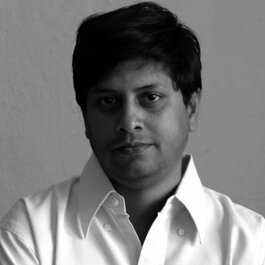
Prof. Priyadarshi Patnaik
Prof. Priyadarshi Patnaik
Professor Patnaik is the head of the Rekhi Center of Excellence for the Science of Happiness at the Indian Institute of Technology, Kharagpur, West Bengal, India.
Professor Patnaik's research explores Indian aesthetics, visual and multimedia communication, music percepetion and aesthetics, text and inter-medial translation. He also works on communication related to generosity and end of life care. His interests in visual arts, poetry, fiction and music also get integrated with his research. Currently, he extends these explorations into the realm of social media.
Working in an institute of technology has had influence on Professor Patnaik. This has resulted in his exploration with a group of scholars and students of using technology to explore his core fields of interest - aesthetics, art and music. As a result, they have taken the first steps into the area of digital humanities as well as cognitive sciences with tools such as eye-tracker, polygraph and EEG.
35
Participants
How to get engaged
If you should be interested in taking an active role, please contact the group at glac.southasia@we-do-change.org

Mome Saleem, Regional Lead GLAC South Asia
Mome Saleem, Regional Lead GLAC South Asia
Ms Mome Saleem is the GLAC regional lead for South Asia. Mome is one of our members who successfully participated in the Unveil the Hidden Presence - Trafficking in Women and Children Lab. Mome is also a member of the Global Diplomacy Lab. She takes care of 49 regional members from 6 countries namely: Afghanistan, Bhutan, India, Pakistan, Nepal and Sri Lanka.
Academically an Anthropologist and a practicing policy researcher and program manager, Mome Saleem has been working in the development sector -local and international think tanks- for the last 14 years. She is the Founding Executive Director of Institute of Urbanism - a think tank focused on studying urbanization and its impacts on human life and environment. She is also working as a technical and planning specialist (Consultant) for Generation Unlimited program for youth development at UNICEF since November 2019. Previously, she has been associated with (2015-2019) German Green Foundation, Heinrich-Boell-Stiftung (hbs) and Friedrich Naumann Foundation for Freedom as Program Coordinator. She has been associated with Sustainable Development Policy Institute (SDPI) as Senior Research Associate and coordinator from 2009-2015. Her research interest revolves around resource equity, climate change, peace and security and gender issues. She has worked and published on related subjects.
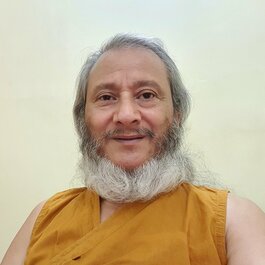
Saamdu Chetri
Saamdu Chetri
Saamdu Chetri, a PhD in commerce, a pilgrim of love and compassion, was born in a cowshed in remote Bhutan. After working for 25 years in the private and development sectors, and five years in the first democratically elected Prime Minister's Office as Head of Good Governance, he instituted the GNH Centre, as one of its founding members and headed it for five years. In his 35 years of life’s working journey, he has been teaching, consulting and speaking at various international and national occasions on various topics, including in the House of Commons in the British Parliament, Senators of Philippines, among others, and dozens of universities and colleges in the world including India. He has many interviews with all kinds of media and wrote three books with several contributions to many books. Since Dec 2017, he is employed by IIT Kharagpur, India, as a teacher and his mindfulness journey continue.
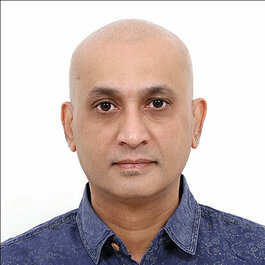
Manjunath Sadashiva
Manjunath Sadashiva
Manjunath Sadashiva is a citizen of India currently residing in Romania. He is an evaluation specialist assisting client-organizations with evaluation research design, instrumentation and data analysis, results-based management including Theory of Change. He was part of the Transformation Thinkers, a network facilitated by Bertelmann’s Foundation, Germany which subsequently got subsumed under Global Leadership Academy by GIZ. In his past stints, he has worked as an Associate Consultant and Visiting faculty on urban governance at Institute for Housing and Urban Development Studies (IHS), Rotterdam, the Netherlands, Programme Consultant on participatory governance at CIVICUS, South Africa, Director of CMCA India and Joint Director at Public Affairs Centre in Bangalore. He possesses a doctorate degree in politics from the Technical University of Dortmund in Germany. Besides, he also has a Master’s degree in Psychology from Bangalore University, a post graduate diploma in urban management from I H S Rotterdam and a second post graduate diploma in regional development planning and management from Technical University of Dortmund in Germany.
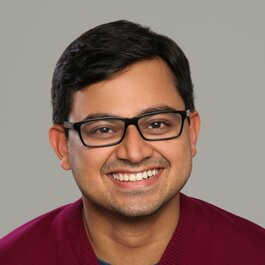
Gaurav Sharma
Gaurav Sharma
Gaurav is currently the Advisor on Artificial Intelligence (AI) with the German Agency for International Cooperation (GIZ – India) and an Affiliate to 'TheFutureSociety.org'. He has worked as a consultant and policy advisor in information technology, international relations and in global development institutions. He is a facilitator for the “Youth Climate Leaders” (YCL) in South Asia, the founder of the Indo-Swiss Future Leaders Forum (ISFLF) and the Policy Advisor for a Drone Consortium in India (Saubika Consortium). Gaurav is currently the working group member of the Global Diplomacy Lab and has been the ambassador for Asia and Pacific for the Global Leadership Academy (2019-2020). Gaurav Sharma was the DAAD (German Academic Exchange Service ) Young Ambassador of India for the year 2018 – 2019; the recipient of the German Chancellor Fellowship 2015-2016, by the Alexander von-Humboldt Foundation as a Visiting Fellow at the German Institute for International and Security Affairs, in Berlin. Gaurav was task force member ‘2030 Agenda for Sustainable Development’ of the Think20 (T20) initiative of the G20 from 2016 – 2019.
He has also received a Crans Montana Forum Young Leaders award (2014). He loves travelling, ideating, and listening to life stories. He is passionate about ‘people and planet’ and believes in technology driven transformative solutions. He is advisor to two NGO’s on agriculture and child-rights.
How to support GLAC South Asia
We also welcome partners and funders who want to support our work. Partners support our sustainability by lending their support to the activities and events of GLAC South Asia. Funders are stakeholders who are interested in providing investment funds for social impact projects that arise within our regional collaboration across the eight SAARC countries: Afghanistan, Bangladesh, Bhutan, India, the Maldives, Nepal, Pakistan and Sri Lanka. Funders may also be partners and members.
Our current partners are:


